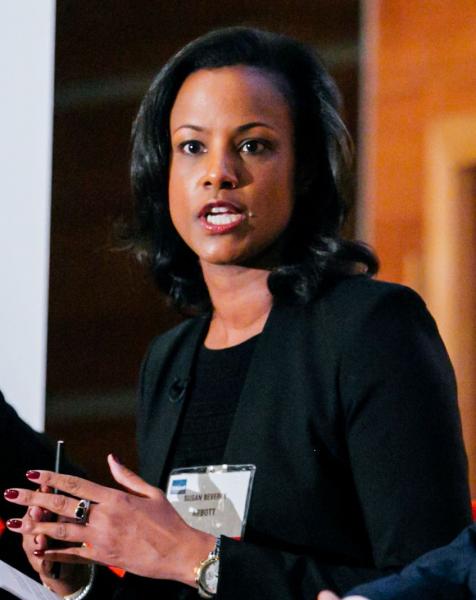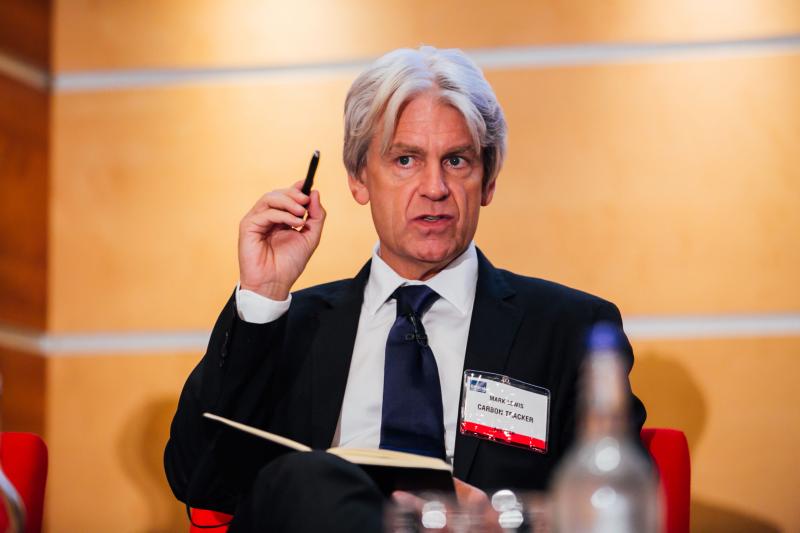Reporting on the SDGs, alignment between reporting standards, and the Task Force on Climate Climate Related Financial Disclosure were big topics during two days of high-level discussion
1. Despite this month’s sobering report from the UN Intergovernmental Panel on Climate Change (IPCC), which warned that the planet is on target to warm 1.50C above pre-industrial levels as early as 2030, “it’s not all doom and gloom” said Richard Howitt. The CEO of the International Integrated Reporting Council revealed that the IIRC is working together with other standards agencies, including the GRI and CDP, in a soon-to-be revealed major alignment. “Companies will no longer have the excuse of too many reporting frameworks,” Howitt said.
2. “We view reporting [on the SDGs] as a strategic opportunity,” said Susan Beverly, senior director, sustainability, at global healthcare firm Abbott. Abbott has been putting sustainability at the heart of its long-term strategy and using it to transform its business and drive innovation, she said.
3. Goodera’s Richa Bajpai emphasized the importance of relevance and immediacy in reporting. “Why,” she asked, “when the real world is at our fingertips, does reporting have to be an annual exercise?” Stakeholders and investors need reporting that is focused, searchable and offers greater meaning, she said, adding that “a 100-page PDF is not useful.”

4. The devil is in the detail, it seems, when it comes to reporting against your company’s impacts – and the key is to focus on the SDG targets, said Pietro Bertazzi, head of sustainable development at the Global Reporting Initiative (GRI). GRI recently produced a practical guide to help businesses prioritize and report on relevant SDG targets.
5. “You can’t cherry-pick what you disclose,” warned Laura Palmeiro, senior advisor for sustainability reporting at Danone. “You can’t report on what you do well but leave out where you are having an adverse affect.” Professor Donna Marshall, head of research innovation and impact at USC College of Business, agreed, adding that the SDGs could easily be derailed by inauthenticity: “The media is always looking for bad news,” she said.
6. The importance of engaging the C-suite was a recurring theme. Mark Lewis, managing director and global head of research at Carbon Tracker warned: “Those in the top level need to understand that they can’t ignore this issue any more,” or they will sustain financial damage. He said that the utility sector, historically a safe haven for investment, has lost 60% of its market value in 10 years because of its failure to adopt more decentralized energy models.
7. Katie Schmitz Eulitt, strategic advisor at the Sustainability Accounting Standards Board (SASB) said investor satisfaction with the information being disclosed by companies is low. “Investors are working with blunt tools,” she said, calling on frameworks and standards agencies to work together so that investors can move capital into more sustainable companies.

8. Mairead Keigher, reporting programme manager at human rights NGO Shift, said the best way to avoid SDG-washing is to adopt a principled approach as a starting point, and consider: “What are the key issues, the key risks to people?” Embedding human rights in their own operations is the biggest contribution to the SDGs companies can make, agreed Daniel Neale, programme director of the Corporate Human Rights Benchmark. “You can’t take credit for educating schoolgirls in Africa if there are no women on your board,” he said.
9. Craig Davies, head of climate resilience investments at EBRD, highlighted some of the results of the Task Force on Climate Related Financial Disclosure’s recent status report. While banks have made good progress on disclosing their carbon transition risks, “there has been less good progress on the physical carbon side”, in other words how climate change impacts might affect their lending. There is a lack of metrics and methodology to assess climate risk, he said. Unless this is addressed, countries that are at highest risk of climate impact could find it more expensive to invest in climate adaptation.
10. “Being a sustainable company means being around for the long term,” said Andrea Stovin, director of global sustainability communications at AstraZeneca. “We are seeing sustainability as increasingly important to our investor base. It’s not just about doing nice things.” Vanguard and BlackRock, Astra Zeneca’s biggest investors, both want to have confidence that the company is making “clear progression [on sustainability metrics] against clear targets, and with clear time frames.”

